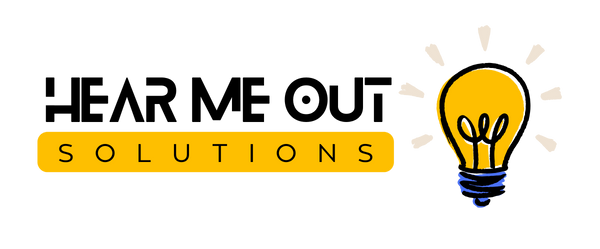

I'm not an audiologist.
But, I don’t need to be.
After two decades in healthcare, and the last five of which consisted of a deep dive into the hearing aid/audiology industry, I’ve faced resistance, not just to my ideas, processes, and methods, but to change itself.
This opposition often stems from my credentials—MHA, not Au.D.—fueling a misconception that I lack valuable contributions to this rapidly evolving industry.
Yet, I see firsthand how swiftly “our” industry is changing.
Private practices must be proactive to stay relevant, lest they be overshadowed by:
- Managed care
- Wholesale stores
- Online retailers
- Manufacturer buyouts
Against the backdrop of such resistance, my response when told my efforts are futile is simply… Hear Me Out.


Outside Perspective
My journey in audiology, although accidental, has been enriched by my experience in other healthcare sectors and a keen interest in technology and innovation. My unique position, lacking prior audiology experience, allowed me to question and understand the industry differently, particularly the challenges private practice owners face.

Read the Numbers
Thanks to AI, I am able to seek out database patterns and insights that remain invisible to the naked eye.
This meticulous analysis sheds light on:
- Purchasing behaviors
- Service plan engagement
- The distinct profiles of those most likely to revisit or modify their hearing aid choices.
It’s here, amidst the digits and data, that the areas of audiology industry change opportunity lie

Uncertainty
In a world where reimbursement rates are shrinking, inflation is rising, and managed care plans are cutting into profits, private hearing aid practices need a solid foundation to thrive.
Relying on gut feelings or outdated metrics won’t cut it anymore. It’s time to dive deep into your data and let it guide your strategic decisions.

Why I write...
My mom was a writer. My dad has an innate understanding of ones and zeros. What seems so obvious now took me almost 40 years to see. My analytical and creative skills had always been in conflict because my right brain told me I had to be one or the other.
One day it finally clicked and I realized I could write about ones and zeros- but more on how I came to the realization later. My left brain reminds me to focus on conveying what I’ve learned and my desire to share and I will write my autobiography later. 🙂
